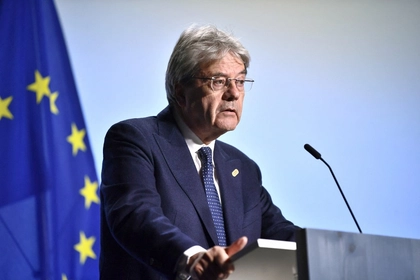On February 26, 2022, while Russian tanks were barrelling towards Kyiv, Ukrainian lawyers were fighting on a different front, submitting a case against Moscow at the International Court of Justice.
The gilded halls of the Peace Palace in The Hague, where the court sits, are a world away from the trenches of Donbas but Ukraine believes its legal attacks on Russia are a critical part of the fight.
JOIN US ON TELEGRAM
Follow our coverage of the war on the @Kyivpost_official.
What cases are open in Ukraine's campaign of all-out "lawfare" against Moscow and, with little chance of Russian compliance, what's the point?
Where are the legal front lines?
The Hague, Strasbourg and Hamburg. Ukraine has dragged Russia before the International Court of Justice (ICJ), which rules on disputes between nations, arguing that President Vladimir Putin abused the UN Genocide Convention when he used an alleged "genocide" in eastern Ukraine as a pretext for invasion.
The final arguments in this case will be heard later Wednesday. Also in The Hague, the International Criminal Court (ICC) has issued an arrest warrant for Putin, accusing him of unlawfully deporting Ukrainian children, a war crime.
Neither of these courts, however, can try Russian leaders, including Putin, for the crime of "aggression", defined as an attack on one state by another in breach of the UN charter.
So a special group of prosecutors from Ukraine, the EU, the United States and the ICC has been set up in The Hague with a view to establishing a special tribunal to bring senior Russians to trial.

G7 Deal on $50 Billion Ukraine Loan Seen in October, Gentiloni Says
Ukraine also has cases open at the European Court of Human Rights (ECHR) in Strasbourg over alleged Russian human rights abuses.
Finally, Ukraine also brought cases to the Permanent Court of Arbitration (PCA) in The Hague and the International Tribunal for the Law of the Sea in Hamburg over what it says is Russia's disregard for international maritime law.
Will Russia comply?
It seems unlikely that Russia would comply with any ruling from an international court -- for example, in March 2022, the ICJ ordered Moscow to immediately halt its invasion.
Russia didn't even turn up to the hearings in that case. But it's far from an academic exercise, said Cecily Rose, assistant professor of public international law at Leiden University.
"There are examples of cases in which Russia has complied at least partially with an adverse ruling by an international court," Rose told AFP, citing a 2015 verdict in which Moscow reportedly stumped up half the cash it was ordered to.
"It shows that non-compliance cannot be cynically assumed. Most of the time, states do comply with awards and judgements rendered by international courts and tribunals."
What's the point?
Even if Russia doesn't comply, Kyiv and most legal experts think the international community needs to draw a line in the sand.
"Some countries do not comply with the law, including Russia. However, it is still important to call them out and to bring a case against them when they do breach the law," said Melanie O'Brien, assistant professor at the University of Western Australia law school.
"The case demonstrates that other countries do not view Russia's conduct as acceptable – but rather, as unlawful," O'Brien told AFP.
A ruling from the ICJ against Russia would be a further element in isolating Moscow and confirm it broke international law, she said.
"It is also an important acknowledgement for victims of human rights abuses and international crimes such as war crimes that what happened to them and their loved ones was not lawful," she added.
Proving that Russia's actions were in contravention of international law could also be key in future peace negotiations, including over potential reparations, noted Rose.
How long will it take?
The wheels of justice grind slowly. The ICJ "genocide" case is only about whether the court even has jurisdiction.
A special tribunal is politically sensitive and will take a long time to establish. But the wheels of justice also grind exceedingly fine.
"Just because Putin won't comply with a ruling now, he won't be in power forever," said O'Brien.
"At some point, a change of regime will occur and may lead to compliance with international law."
You can also highlight the text and press Ctrl + Enter






